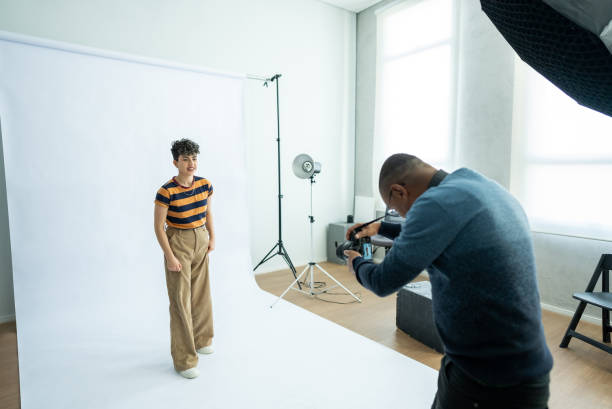Are you envisioning a thrilling career amid the glitz and glamour of the fashion industry? Perhaps you’ve dreamt of joining the ranks of influential fashion designers, showcasing your creations on global runways. Or maybe you’re drawn to the fast-paced world of fashion buyers, curating attire that sets the trends. Getting into the fashion industry requires more than just a passion for fashions; it necessitates a combination of the right education, work experience, and networks. As you’re getting started, this guide will provide essential steps and tips on getting there, helping to turn your aspirations into a professional reality.
Understanding the Fashion Industry
The Many Facets of Fashion
The fashion industry is vast and multifaceted, encompassing everything from design to production, and from marketing to retail. With an understanding of the various careers available, you can determine which path aligns with your skills and interests. Whether you’re captivated by the creative process of designers or the analytical acumen of fashion buyers, there’s a niche for you. Knowing the ins and outs of these specialties will help guide your next steps and inform your career decisions.
The Evolution of Fashion
From haute couture to fast fashion, the sartorial world has undergone significant transformation. Today, the industry is not only shaped by aesthetic and styles but also by sustainability initiatives and technological advancements. Understanding this evolution is critical when planning your career trajectory. Staying informed will help you anticipate changes and carve out your own niche in this competitive field.

Educational Pathways into Fashion
Formal Education vs. Self-Taught Skills
While formal education in fashion can open doors, gaining self-taught skills through alternative routes like online resources or practical experience could also be valuable. A blend of theoretical knowledge and hands-on skills might want to be your strategy. You might also consider design programs or business courses that could help provide a well-rounded education.
Top Fashion Schools and Programs
Attending a renowned fashion school can provide an advantageous foundation for your career. Before we delve into key institutions, consider what attributes are vital for a good program. It should offer comprehensive curriculums, provide practical experience through internships, and foster industry connections for your future networks.
Notable Fashion Schools:
- Fashion Institute of Technology (FIT), New York
- Central Saint Martins, London
- Parsons School of Design, New York
- IED – Istituto Europeo di Design, various locations in Europe
Gaining Real-World Experience
Building your practical experience through internships or apprenticeships is almost as important as your formal education. These opportunities not only enrich your resume but also embed you within the inner workings of the industry. Moreover, they can lead to future job offers or important referrals, making them a critical step in your budding career.
A successful career in fashion often comes down to who you know. Industry events and fashion weeks offer great opportunities for networking. From rubbing elbows with established designers to connecting with other aspiring talents, these events can be pivotal in getting your foot in the door.
Key Networking Events:
- New York Fashion Week
- London Fashion Week
- Milan Fashion Week
- Paris Fashion Week

Building Your Fashion Career
Creating Your Brand and Portfolio
Your brand and portfolio are essential tools in distinguishing yourself in a sea of aspiring professionals. Your portfolio should be a curated representation of your best works, demonstrating your unique style and skillset. Meanwhile, your brand is how you market yourself—your ethos, your design philosophy, and your professional persona. Developing both thoughtfully will set you apart.
Staying Current and Cultivating Adaptability
The fashion industry moves at a whirlwind pace, and staying current is imperative. Subscribing to trade publications, attending fashion shows, and keeping an eye on emerging designers are just a few ways to stay in the know. Furthermore, the ability to adapt to new trends and business models—a key business skill—will help ensure your longevity in the industry.
Job Hunting Strategies in Fashion
When it’s time to seek out job opportunities, it’s important to have strategies in place. Tailoring your resume and cover letter to each position is critical, as is utilizing job platforms specific to the fashion industry. Recruitment agencies that specialize in fashion can also help you find suitable roles.
| Fashion Role | Key Responsibilities | Suggested Experience |
|---|---|---|
| Designer | Crafting original designs, predicting trends | Degree in fashion design, portfolio of works |
| Buyer | Selecting merchandise, inventory management | Business skills, work experience in retail |
| Marketer | Promoting brands, strategizing campaigns | Degree in marketing, understanding of fashion trends |

Conclusion
Your journey into the fashion industry may be challenging, but your dedication and hard work can help transform your dreams into a vibrant career. Remember that while talent is important, it is often your education, networking, work experience, and personal brand that will set the foundation for success. Embrace every opportunity to learn and grow, and the fashion worlds will open its doors to your potential.
FAQs
Q1: Do I need a degree in fashion to break into the industry?
A1: A degree can be beneficial for access to knowledge and networking opportunities, but it is not the only path. Many fashion industry professionals have found success through hands-on experience, self-taught skills, and strong personal branding.
Q2: Can I break into the fashion industry even if I can’t draw or design?
A2: Yes, there are many roles in fashion that do not require drawing or designing, such as marketing, merchandising, production, and more. Identifying your strengths in other areas will help guide your career path.
Q3: How important is networking in the fashion industry?
A3: Networking is incredibly important. Building relationships can lead to future job opportunities and is often crucial to success.
Q4: Is it important to follow fashion trends if I want to work in the industry?
A4: Understanding current trends is essential, as they influence consumer demand and the industry at large. However, foresight and innovation are equally crucial.
Q5: What are some effective ways to showcase my work in the fashion industry?
A5: A professional online portfolio, engaging on social media, and participating in fashion shows and competitions are great strategies for showcasing your work and getting noticed.





